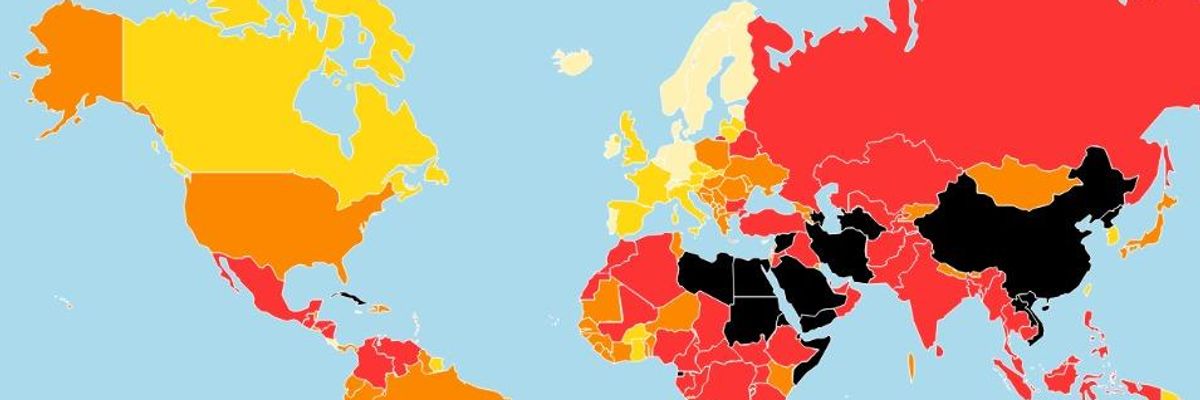An annual accounting of press freedoms around the world describes an "intense climate of fear" in which reporters are being forced to work, calling out world leaders like U.S. President Donald Trump and Brazilian President Jair Bolsonaro for their attacks on the media.
Trump's repeated statements that journalists are "the enemy of the people" and his threats to roll back their right to report political news have been a contributing factor in the United States' descent to 48th place in the Press Freedom Index, which was released Thursday by Reporters Without Borders or Reporters Sans Frontieres (RSF).
The U.S. slid down the list three places and is now categorized as a "problematic" country for journalists' rights, according to RSF.
"The violent anti-press rhetoric from the highest level of the U.S. government has been coupled with an increase in the number of press freedom violations at the local level as journalists run the risk of arrest for covering protests or simply attempting to ask public officials questions," RSF reported.
The country is behind Slovakia, where an investigative journalist was murdered in 2018 after reporting on the Calabrian mafia's connections in the government; Botswana; and Romania.
The top-rated country, for the third year in a row, is Norway, with RSF praising the government for not subjecting journalists to political pressure or censorship.
In contrast, Trump has weakened the United States media's right to report, the group said, amid incidents including the president's refusal to condemn the Saudi government for allegedly ordering the murder of Washington Post journalist Jamal Khashoggi; a number of bomb threats that targeted media outlets last year, apparently from a Trump supporter; and the physical assault of a BBC cameraman at a Trump rally where the president had slammed the media as "dishonest."
The United States' slide into the "problematic" realm on the Press Freedom Index is part of an international trend, RSF said, of attacks on press freedom.
"The 2019 World Press Freedom Index compiled by Reporters Without Borders (RSF) shows how hatred of journalists has degenerated into violence, contributing to an increase in fear," RSF wrote in its report. "The number of countries regarded as safe, where journalists can work in complete security, continues to decline, while authoritarian regimes continue to tighten their grip on the media."

